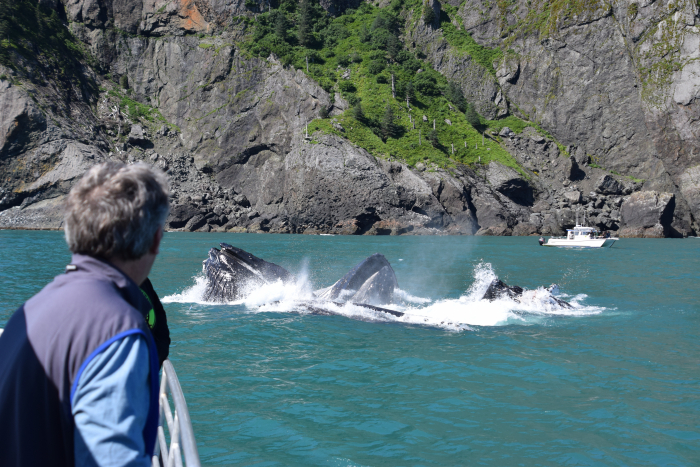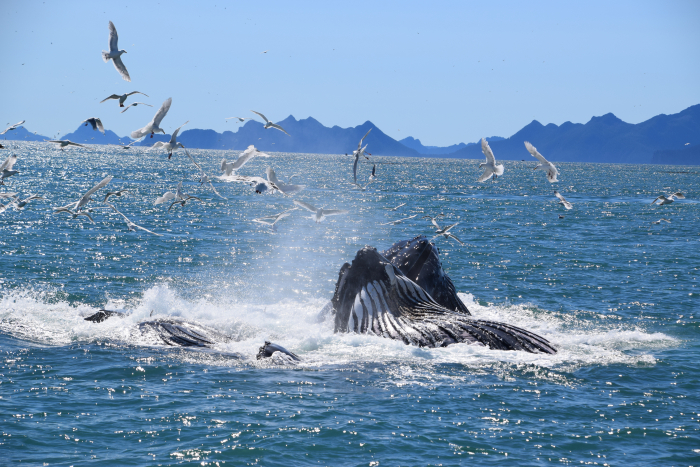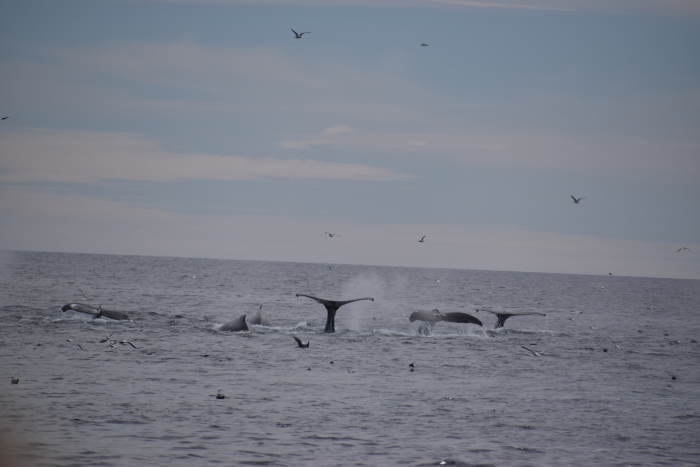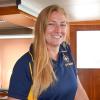Hello again! It's been a while since my last journal posting, so it's time to give you an update of what's going on.
PolarTREC Update
Unfortunately, I will not be joining Dr. Amy Moran and her team at McMurdo Station this fall. The number of people at McMurdo is reduced due to COVID precautions. While I completely understand the decision to limit the personnel coming to the Station, it is nonetheless disappointing. Amy and I will still try to coordinate something with my classes while she and her team are there, so it's not a total loss. I'm still keeping my fingers (and toes now, too) crossed for deployment to Antarctica in 2022. I'm also reading the journals of those PolarTREC educators that are out in the field this summer (and you should, too!), so I'm getting some polar science content, and I hope you do as well.
Alaska Summer 2021
I am spending my summer break from school in Seward, Alaska, working on a sightseeing tour vessel. I have been doing this for the past 9 summers, and love every minute of it! I get to be on the water every day, observing the wildlife and amazing geologic features of Kenai Fjords National Park. No two days are ever the same!
One of the most amazing things I've gotten to see is a special feeding behavior seen in humpback whales. Humpbacks are generally solitary animals that feed on plankton and small fishes; however, the humpbacks here in Kenai Fjords National Park waters sometimes work together to feed, in a phenomenon known as "bubble net feeding". This cooperative feeding behavior is something relatively new for the humpbacks here - it was first observed here around 10-13 years ago or so, and it's thought that the humpbacks that feed in our waters here learned the behavior from other humpbacks in Southeastern Alaska. How cool is that?!?
Bubble net feeding occurs with a group of humpbacks working together to maximize their food intake. When there's a large school of bait fish, the whales will dive deep under the school of fish. The whales will then blow bubbles out of their blowhole while circling around the fish school and slowly ascending. The bubbles act as a "net" that forces the bait fish into a condensed ball. As the whales and bait fish approach the surface, the lead whale will make a "feeding" call that tells all the rest of the whales to surface all at once with their HUGE mouths open, taking gigantic gulps of water and baitfish! It is quite the spectacle, seeing a large group of humpback whales simultaneously surfacing with their mouths open. Oftentimes, there will be many seagulls flying around in the same area, because the gulls feed on the same fishes that the humpbacks feed on. The gulls are not good divers, so they cannot go down deep to grab prey, so instead, they pick fish off the surface once the humpbacks have done the work of pushing the fish upwards in the water.
It truly is an awesome sight to behold, and definitely NOT something we see every day here. Check out the photos below!
 Humpback whales surfacing with their mouths open while bubble net feeding. Photo credit to Tammy Orilio; taken on 10 July 2017 in Resurrection Bay, Alaska.
Humpback whales surfacing with their mouths open while bubble net feeding. Photo credit to Tammy Orilio; taken on 10 July 2017 in Resurrection Bay, Alaska.
 A view of the throat grooves of a humpback whale while bubble net feeding. Photo credit to Tammy Orilio; taken on 10 July 2017 in Resurrection Bay, Alaska.
A view of the throat grooves of a humpback whale while bubble net feeding. Photo credit to Tammy Orilio; taken on 10 July 2017 in Resurrection Bay, Alaska.
 Humpback whale tail flukes and back arches as they dive deep to begin another bubble net feed. Photo credit to Tammy Orilio; taken on 29 June 2021 in Resurrection Bay, Alaska.
Humpback whale tail flukes and back arches as they dive deep to begin another bubble net feed. Photo credit to Tammy Orilio; taken on 29 June 2021 in Resurrection Bay, Alaska.
Question of the Day:
Whales can be classified into one of two basic groups - what are the two groups? Which group do humpbacks belong to?


Comments
Add new comment